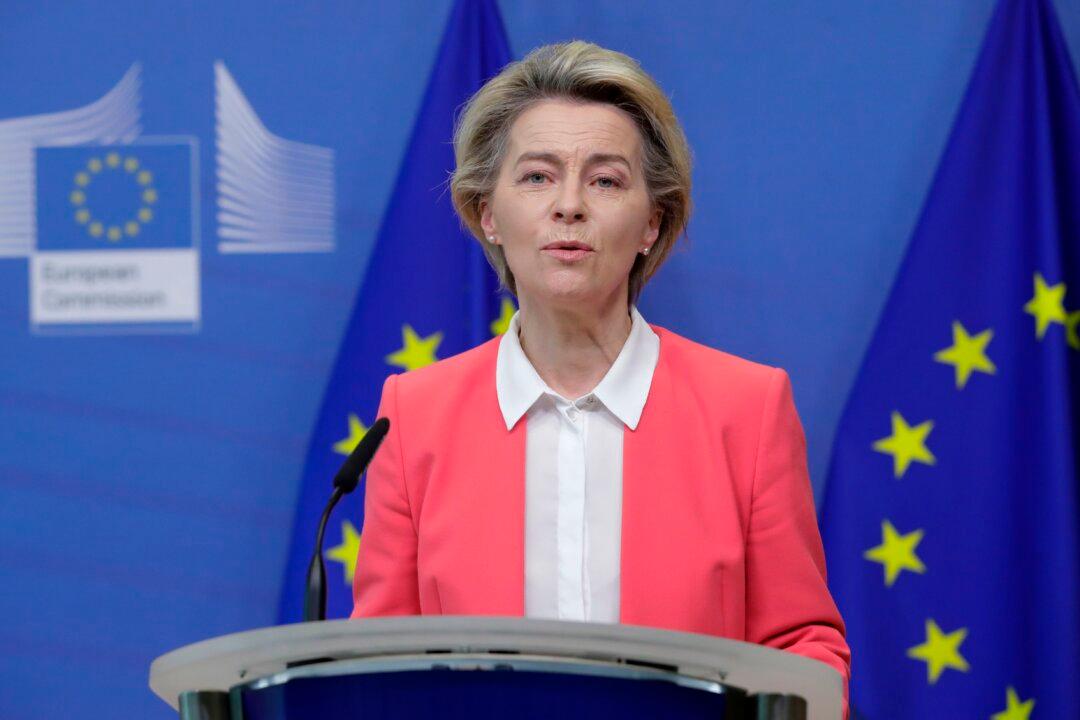Britain and the European Union have agreed to “go the extra mile” in talks on post-Brexit trade relations, with just two and half weeks left before the existing trading arrangement is set to expire on Dec. 31.
Briefing the media in Brussels on Sunday lunchtime, European Commission President Ursula von der Leyen said she has had “a constructive and useful phone call” with British Prime Minister Boris Johnson.





